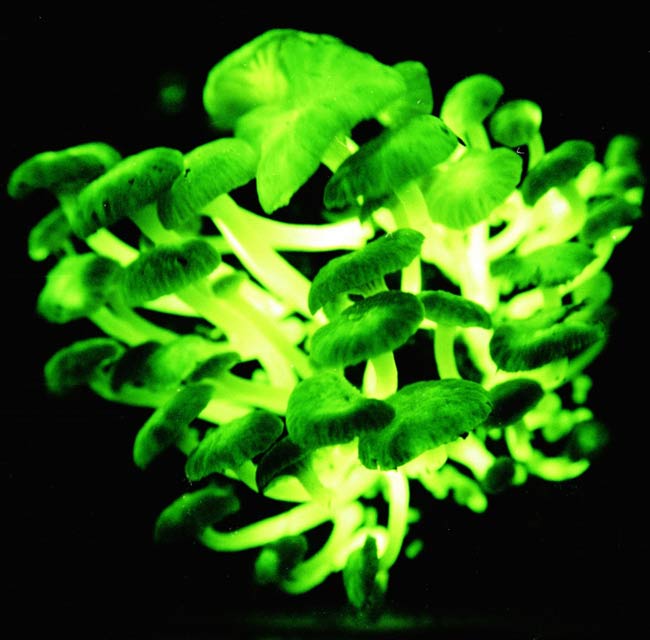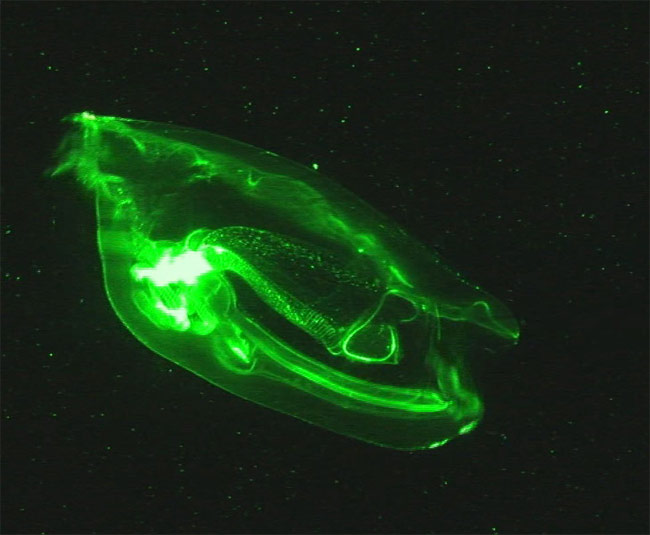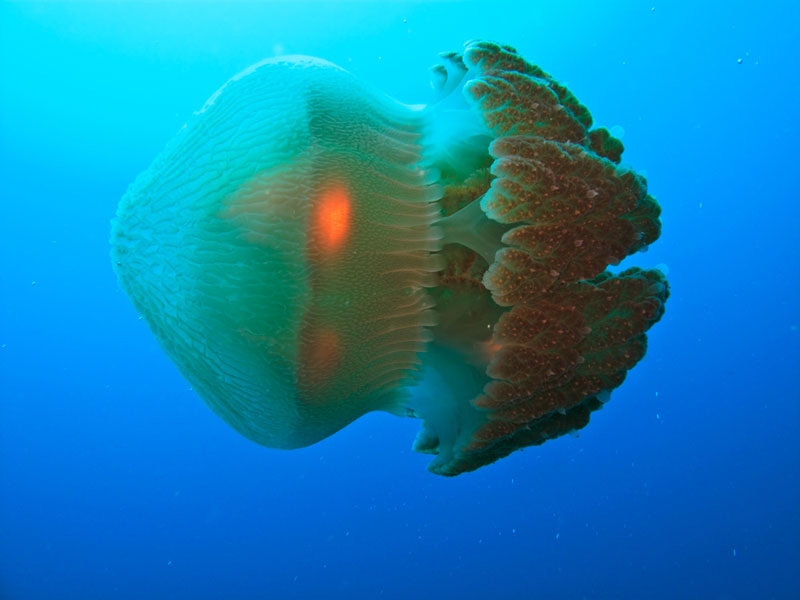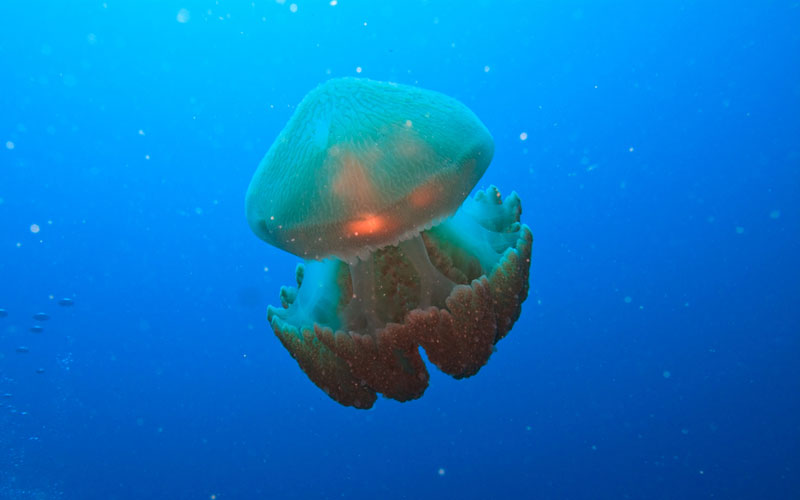Gallery: Eye-Catching Bioluminescent Wonders
Nightlight Mushrooms

Mycena lucentipes, which literally means "glowing stem," are bioluminescent fungi whose stems glow so brightly that they illuminate the caps as well, creating the illusion that the entire mushroom is glowing in the dark. There are more than 60 species of bioluminescent fungi species, and the M. lucentipes is one of the brightest-glowing species. Discovered in 2006 in São Paulo, Brazil, by researchers from Brazil's Institute of Botany, the mushrooms are believed to glow to attract nocturnal insects and animals that can aid in spore dispersal. In the daylight, the mushrooms are a bland brown and tan color, but when night falls, their continuous bioluminescent glow shines through.
Radiant Salps

The salp is a 5-inch (13-centimeter)-long , barrel-shaped organism that resembles a streamlined jellyfish. It lives in mid-ocean waters where it filters the seawater for food particles. Some species of salps are bioluminescent and exude flashes of light. Salps swim and eat in rhythmic pulses, each of which draws seawater in through an opening at the front end of the organism. A nanometer-scale mucus net captures the food particles, mostly phytoplankton, which end up in the gut where they are digested.
Box Jellyfish

This jellyfish glows from within, emitting a soft, peach-hued light as it swims. It was identified as a box jellyfish by the photographer, Pete Niesen, who spotted the venomous marine creature in Australia's Great Barrier Reef.
Bioluminescent Box Jellyfish

Another shot of the box jellyfish, taken by Pete Niesen. It may look serene as it slowly swims by, but this jellyfish is one of the world’s most poisonous creatures. Even a miniscule amount of its venom can cause a person's heart to seize up and stop.
Get the world’s most fascinating discoveries delivered straight to your inbox.
 Live Science Plus
Live Science Plus





